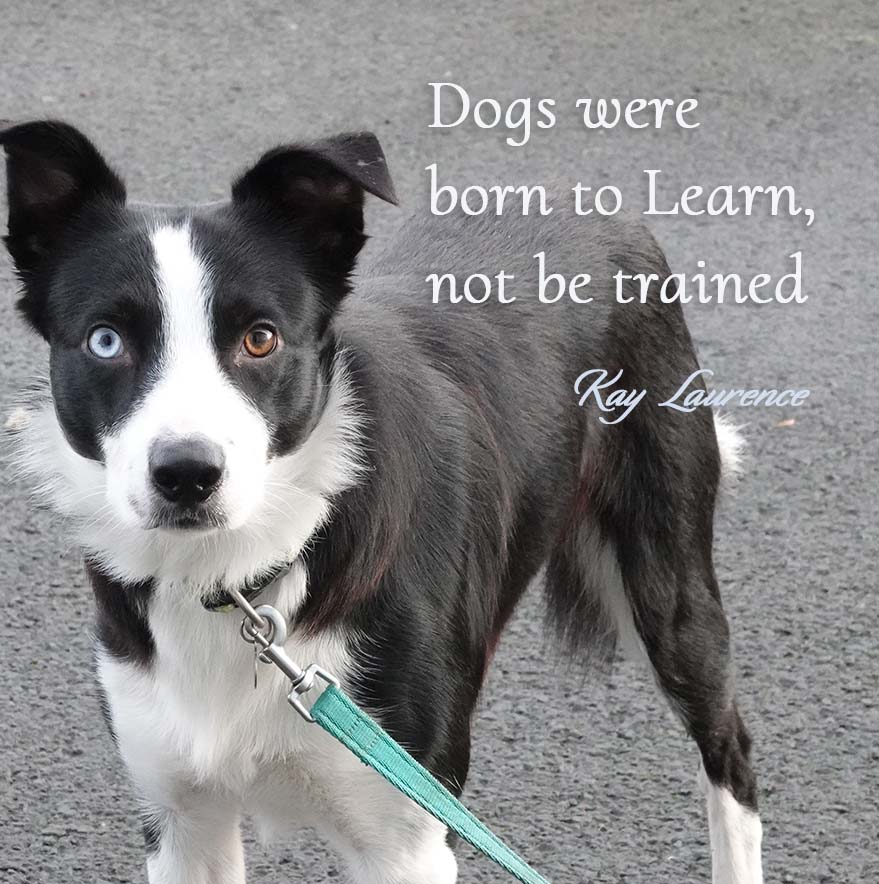learning community
Born to Learn Mar 23
8 weeks. Starting 16 Mar 2023
A foundation in learning technology to be able to build tremendous learners that share our lives and take you beyond the idea that “dogs are trained”.
What do we want our dogs to learn? What skills are going to be of greatest value to them? Learning to learn is a skill. It is full of critical elements that will transfer to everything they do for the rest of their lives.
Do you know good form? Is the dog able to move with ease and comfort or compromised by lack of skills, the equipment or a poorly timed reinforcement process?
By learning the underpinning technology in detail we become skilled in being able to build a plan and guide the dog to gain more rewards. Dogs that need our help can benefit significantly when we become diligent students of learning.
This course is suitable for anyone interested in becoming a student of learning: for dogs that walk, sit, play, run, live with people.
£90
#BornToLearn
#CanWeDoBetterForDogs
#ForTheBenefitOfTheDog
discount 20% for setter members
course FAQs
What do they learn?
A pup can learn to recognise signals and movements from people: when food is coming, what affection is available, what to watch quietly and study their world. A blend of observation skills, memorising patterns and distinguishing sounds. Where to pee and when rewards are bonuses. Selecting what is relevant and what is not in connection with what directly affects them.
 Learning to move with balance, coordination, power: negotiate staircases, climb in and out of cars, walk with a different people, balance to be able to pee, run without crashing into trees. Learning motor skills that can underpin lifelong movements begins with simple disciplines, such as sitting, with good form. Poor form can lead to discomfort, injury and inflexibility. Learning to run to a stop, run to grab a toy, racing with friends, dancing for butterflies can be enjoyed when the foundations are sound.
Learning to move with balance, coordination, power: negotiate staircases, climb in and out of cars, walk with a different people, balance to be able to pee, run without crashing into trees. Learning motor skills that can underpin lifelong movements begins with simple disciplines, such as sitting, with good form. Poor form can lead to discomfort, injury and inflexibility. Learning to run to a stop, run to grab a toy, racing with friends, dancing for butterflies can be enjoyed when the foundations are sound.
The learning skills do not happen by accident. Any dog can develop these at any time when given the right opportunity to learn. This begins with their natural enthusiasm for learning combined with a plentiful choice of rewards.
When a dog feels safe and comfortable learning will happen when given the right guidance along their individual learning pathway. A pathway planned for their individual future. Not too much too soon, not too difficult to progress from one stage to the next, not struggling to learn for tricks or to impress but to become a Tremendous Learner. A pathway that is filled with ease and pleasure.
This pathway is laid by our skills to be able to see what they are learning, adjust that learning and design situations to build flexibility and strengths. A pathway to bloom and flourish.
Learning technology
By learning the underlying technology in detail we become skilled at being able to build a plan and guide the dog to gain more rewards. It matters little how your dog chooses to park their own butt, but it matters a great deal that you understand the learning needed to be able to do this successfully and assist a dog that struggles to complete this or any other movement.
Is your dog comfortably walking at your side or ambling, strolling, pacing or trotting? Do you know the difference and know good form? Is the dog able to move with ease and comfort or compromised by the equipment or reinforcement process?
If you are familiar with horse riding then you will be aware that knowing these gaits is critical to success but the dog world is poorly backward in teaching this basic understanding.
Dogs who need our guidance can benefit significantly when we become diligent students of learning.
We can build tremendous learners when we get beyond the idea that “dogs are trained”. We can build learning skills so that they can:
-
- process faster and develop the learning skills with ease
- make changes and adapt their learning with flexibility
- develop their abilities to assess and process situations
- read the environment and begin physical preparation in anticipation
- increase perceptive skills
- recognise and remember more stimuli, environments and situations
Are you moving towards designing learning for the way that learner chooses to learn or just carrying on training the way you like to train?
Format of the Course
Lessons and Resources will be in the Learning About Dogs Voyage of Discovery Forum on a weekly basis with live reviews, discussions and feedback. Live classes will be at 1700 GMT and be recorded for participant access. You do not need to attend the classes to have access to the lessons.
Participation certificates will be available on completion and require a minimum contribution to the course.
The course will be taught by Kay Laurence and Frances McCormack with equal emphasis on developing critical thinking, reading, video analysis, discussion and practical work.
Get in Touch
Please do not hesitate to get in touch if you have any questions about the course: email kay

